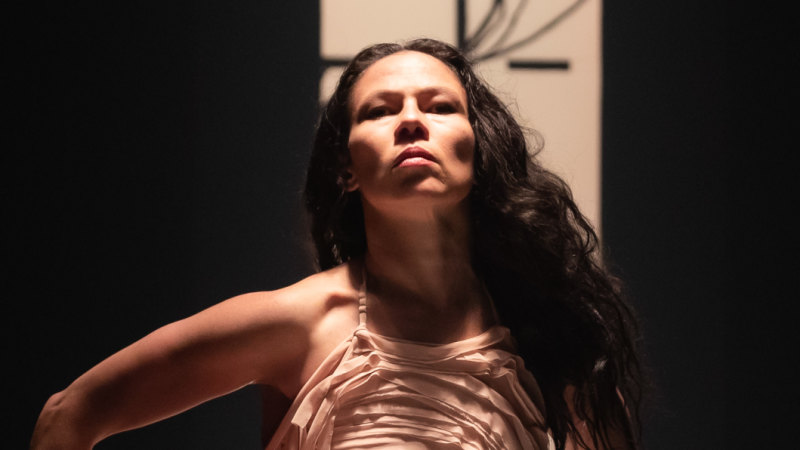DANCE
BANGARRA: 30 YEARS OF SIXTY FIVE THOUSAND ★★★★
Bangarra Dance Theatre, Arts Centre Melbourne, until September 14
Bangarra Dance Theatre’s 30 Years of Sixty Five Thousand.Credit:Daniel Boud
Bangarra: 30 Years of Sixty Five Thousand is celebrating the company's 30th anniversary with an ambitious national tour. The triple-bill showcases contemporary Aboriginal dance and presents its first engagement with a non-Aboriginal, non-Australian choreographer.
Frances Rings'Unaipon is a meditation on the life and philosophy of Australia's first published Aboriginal author and thinker, David Unaipon, whose faces graces Australia's $50 note.
The 2004 work marks a time of Bangarra's growing interest for biographical pieces, as well as a dedication to nurturing a new generation of choreographers. The most impressive part of the 45-minute remount is String Games, inspired by one technique for passing cultural knowledge: an all-male ensemble continuously tangles and disentangles themselves from elastic strings stretched across the stage, acrobatic and supple.
Bangarra's back-catalogue also features in the last act, to make fire, a compilation of short pieces – mostly in classic dance theatre style – from the biographical Matahina (2008), the wind-centred About and ID from Belong (2011), and Rush from the 2002 Walkabout.
The centrepiece of the evening is a remount of Jiri Kylian's Stamping Ground, created in 1983 for Nederlands Dans Theater after Aboriginal and Torres Straits Islander dance: Kylian had witnessed a large corroboree on Groote Eylandt and was profoundly moved by the experience.
Stamping Ground reproduces some of the vocabulary of Aboriginal dancing – animal mimicry and humour, flat-footed steps and sideways wide-kneed jumps, centre of gravity in hips and thighs – but speeds it up to a fast, percussive soundscape, almost Tom & Jerry-like; it requires clockwork precision. It is thrilling to see Stamping Ground on Aboriginal bodies.
The piece is framed with excerpts from a documentary, in which Kylian, with unusual sensitivity for the time, considers the risks of cultural appropriation. It is a good time to note that Bangarra was founded by an African-American woman, and that exchange is at the heart of culture.
Source: Read Full Article

